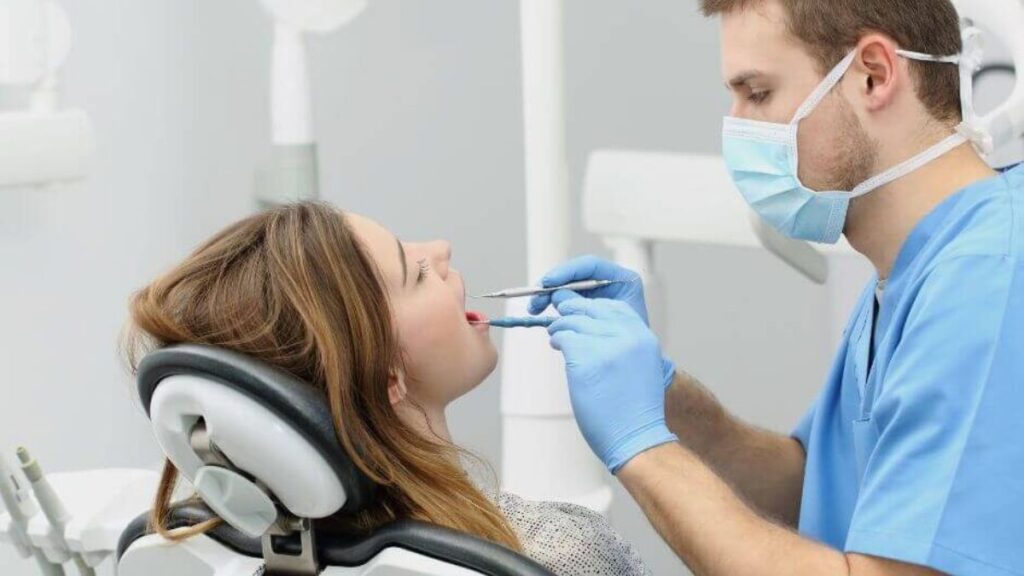Why Learning New Skills Matters in Dentistry
The landscape of dentistry is changing at a rapid pace—patient needs are becoming more complex, and new techniques emerge regularly. For dental professionals, staying current goes far beyond meeting mandatory continuing education requirements. Consistent and targeted learning empowers practitioners to offer updated approaches that lead to improved patient outcomes and more streamlined workflows. If a dentist remains static, their knowledge may quickly become outdated compared to peers who regularly participate in continuous education. Reliable resources, such as https://www1.deltadentalins.com/dentists/resources/training-and-events.html, serve as a hub for discovering the latest workshops, seminars, and webinars essential for ongoing professional growth.
According to the American Dental Association, enhanced training leads to higher diagnostic accuracy and overall patient trust—a foundation for long-term practice success. With growing patient awareness and expectations, remaining up-to-date is no longer optional. Many real-life examples show that dentists who adopt new endodontic techniques or surgical skills early often secure a broader patient base and increased word-of-mouth referrals. Even simple improvements in chairside manner can result in significant advances in practice reputation and growth.
Keeping Up With Changing Technology
Technology is revolutionizing every aspect of dental care, from diagnosis and preventive strategies to treatment and practice management. Digital radiography, advanced intraoral scanning, laser dentistry, and 3D-printed prosthetics enable practitioners to deliver faster, more comfortable, and accurate treatments. Regularly participating in educational sessions enables dental professionals to try new devices firsthand, identify which upgrades benefit their office the most, and confidently explain options to their patients.
For instance, digital impressions have significantly reduced patient discomfort and improved the fit of restorative work, resulting in fewer remakes. Offices that implement these technologies often report improved case acceptance and better patient retention. Moreover, familiarity with innovations such as teledentistry platforms ensures that practices stay accessible to patients who prioritize virtual consultations. The continued evolution of dental tech means training is not a one-time investment but an ongoing journey that benefits both clinicians and the communities they serve.
Adapting to Shifting Industry Standards
Dentistry is governed by a dynamic set of best practices and regulations designed to ensure patient well-being and the highest levels of safety. Governing organizations frequently update their recommendations, particularly regarding infection control, PPE protocols, radiograph safety, and record-keeping. Failure to remain aligned with these changes not only risks patient safety but also increases vulnerability to compliance issues.
Dental professionals who prioritize lifelong education ensure they are prepared to keep their offices and patients protected. Recent discussions of lifelong learning in dentistry emphasize the importance of adapting to evolving standards, both legally and ethically. Dental teams who participate together in update sessions develop shared accountability, making it easier to implement new guidelines and foster a safety-forward culture within the practice.
Improving Team Collaboration and Patient Care
A well-trained team is central to a thriving dental practice. When dentists, hygienists, dental assistants, and administrative staff participate in ongoing professional development, the effects extend beyond individual knowledge. Joint training sessions focused on communication, customer service, or even stress management help strengthen teamwork. For example, a practice committed to learning about trauma-informed care and cultural competence fosters a stronger bond with patients and enhances the patient experience from the moment they enter the door.
- Enhanced communication and reduced risk of error
- Greater teamwork, mutual respect, and morale
- Consistency in applying best practices throughout the office
- Increased patient comfort and loyalty
When everyone understands and works toward a common goal, patient satisfaction rises, and long-term retention follows. High-performing practices often cite this collaborative culture as a critical driver of their success.
Meeting Rising Patient Expectations
Patients are more informed and motivated than ever before. Many conduct their research, compare local practices, and expect advanced solutions with a personalized touch. Dental professionals must now be equipped to answer complex questions, discuss a broad spectrum of treatment choices, and clearly explain the benefits and drawbacks of each. Participation in workshops and advanced training ensures clinicians feel equipped to meet these demands head-on.
Patients are more likely to recommend dentistry practices where they feel heard and educated. In the digital era, this translates to better online ratings and more robust referral networks. By staying current and confident, dentists can create a patient experience that fosters loyalty and drives organic growth in their practice.
Certifications and Expanding Professional Growth
Earning new certifications not only fosters personal achievement but also creates business opportunities. Every added credential enables professionals to expand the types of care they can offer—whether it’s sedation, clear aligner therapy, or specialized pediatric care. As a result, practices attract new demographics and build more robust patient lists.
Many state boards require continuing education for license renewal, making participation in these programs both mandatory and career-enhancing. Furthermore, certifications validate expertise in a way patients appreciate. Dental practices that showcase a broad range of qualifications often see measurable growth, both in patient base and revenue.
Building a Professional Dental Network
Conferences, study clubs, and industry seminars are not solely educational—they also provide professionals with opportunities to connect and build relationships within the dental community. These connections often lead to mentorship, second-opinion consultations, and even partnerships for interdisciplinary care. By sharing insights and learning together, dental professionals can stay motivated, keep up with fast-moving trends, and reach out for support during challenging cases.
- Learn practical solutions from industry leaders.
- Expand clinical and business knowledge through peer discussions
- Identify new technology and product trends
- Reduce professional isolation and decrease the risk of burnout
Studies indicate that dentists who actively network report higher job satisfaction and are more likely to pursue innovative care models within their practices.
Creating a Culture of Lifelong Learning
Establishing a culture where learning is celebrated is a key driver in high-performing dental practices. When dental leaders emphasize continued growth and incentivize professional development—such as by covering tuition for a key course or allowing paid educational days—team morale and engagement increase. This atmosphere sets the stage for creativity and continuous improvement, ensuring that new ideas for patient care and business development are always at the forefront.
Research consistently shows that practices that bake leadership into their daily routines report higher patient satisfaction, better clinical outcomes, and greater excellence among their teams. Investing in knowledge, whether through formal events or informal peer learning, delivers dividends for both the practice and the wider community. The most successful dental professionals think of education as a lifelong companion, fueling both their clinical impact and the health of their businesses.






